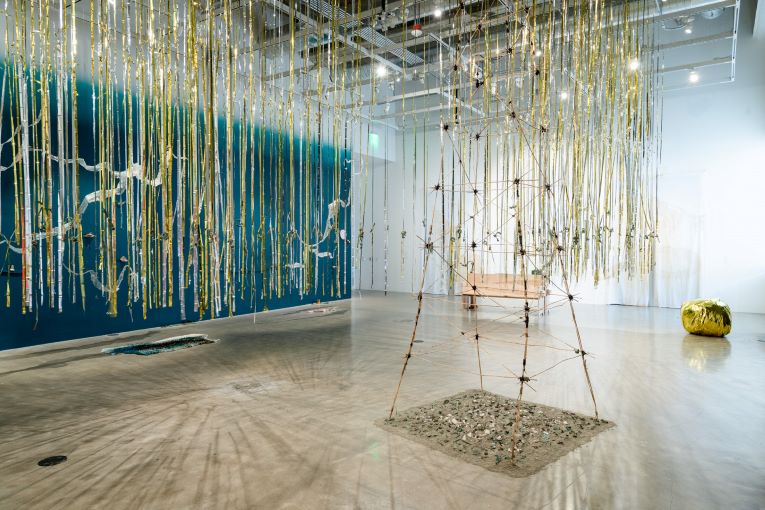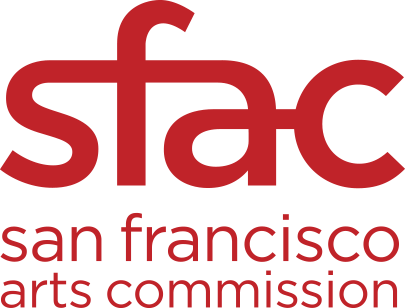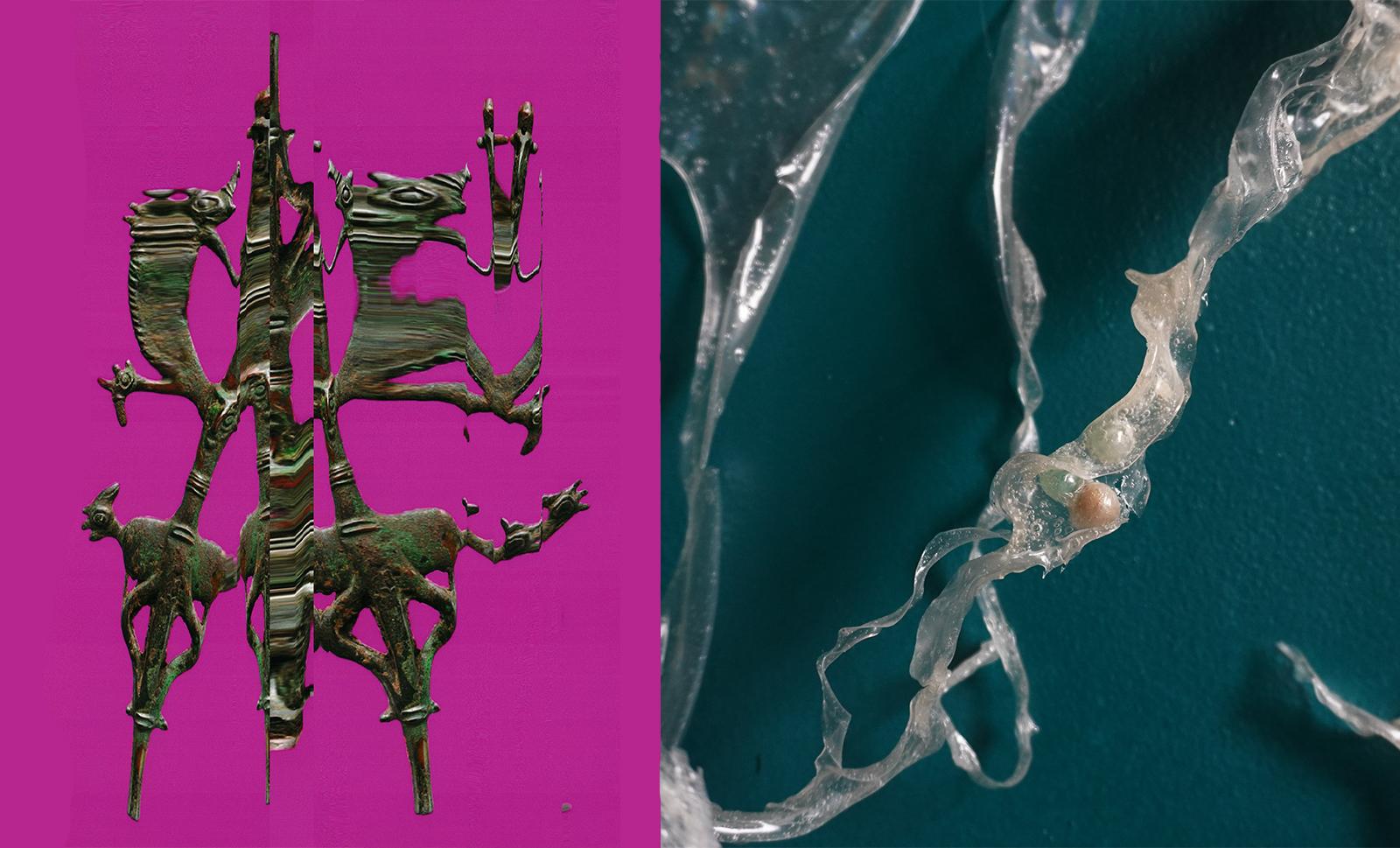Artist Talk and Screening

Join exhibition artist Shirin Khalatbari and independent curator Kathy Zarur for an engaging conversation about Khalatbari's new work on view in When Unearthed Sights Collide. Khalatbari’s work explores the complex interplay between archeology, the discovery of oil, and the lingering impact of colonialism in West Asia. Their art poignantly reflects on the early 20th century in Iran, a time when the discovery of oil and the excavation of ancient artifacts were deeply intertwined with colonial ambitions.
Kathy Zarur, a curator and educator based in San Francisco, brings her extensive experience and research on contemporary art and the museum industry in Southwest Asia and its diasporas to this conversation.
Following the discussion, we will screen two films by the renowned Iranian filmmaker Ebrahim Golestan. Golestan, a pioneering figure in Iranian cinema and literature, is known for his critical and poetic approach to filmmaking. The first film, Wave, Coral, and Rock chronicles the laying of oil pipelines in the south of Iran, culminating in a political statement about the people of Iran having no share of the oil wealth. The second film, The Hills of Marlik explores a 3,000-year-old site in the north of Iran, highlighting the intersection of human life, art, and death.
These films resonate deeply with Khalatbari’s art practice, which also examines the intersections of history, culture, and colonialism. Wave, Coral, and Rock mirrors her exploration of how the discovery of oil has shaped socio-political landscapes, while The Hills of Marlik aligns with her focus on archeology and the commodification of cultural heritage. Both the films and Khalatbari's work invites viewers to reflect on themes of cultural loss, identity, and the reclamation of history.
BIOS
An Iranian filmmaker and writer, who was a leading figure in Iran’s film industry. Ebrahim Golestan was originally recruited to make a series of PR-led educational shorts and films for an Anglo-Iranian oil consortium. He left in 1957 to set up his own production house, Golestan Studios, creating such critically-acclaimed works as A Fire (1961), The Hills of Marlik (1963), Brick and Mirror (1964), The Crown Jewels of Iran (1965), Harvest and the Seed (1965), Kharab-abad (1966) and Secrets of the Treasure of the Jinn Valley (1974). After the death of his partner Forugh Farrokhzad, director of the documentary The House is Black (1967), which Golestan produced, he sold his studio and relocated to the UK, where he continued to write and publish several stories and books until his death in 2023.
Shirin Khalatbari (b.1987) is an artist, archaeologist, activist, and educator, born and raised in Tehran, Iran. In 2009, they relocated to Italy, where they earned both their bachelor's and master's degrees in Near Eastern Art and Archaeology from La Sapienza in 2014 and 2016, respectively. Upon immigrating to the Bay Area in 2016, Shirin pursued their MFA at San Francisco State University, graduating in 2019 with the Graduate Award for Distinguished Achievement. In 2018, Shirin was honored with the Jack K. and Gertrude Murphy Award. They have exhibited internationally in United States, Italy, and Iran. Shirin’s artistic focus revolves around transdisciplinary and research-based exploration, delving into the consequences of colonialism in West Asia by scrutinizing historical narratives and archaeological discoveries. They investigate the interplay among politics, poetics, and aesthetics in objects, aiming to envision a world liberated from colonial influences. Employing various mediums such as photography, installation, digital art, and activism, Shirin often uses light and shadow to construct alternate spaces. Shirin is one of the three co-founders of MUZ Collective, an artist collective dedicated to uplifting our community and creating opportunities for emerging artists through curating exhibitions where they can exhibit alongside established artists.
Kathy Zarur is a curator and educator based in San Francisco. She has curated exhibitions for the San Francisco Arts Commission, Center for Asian American Media Film Festival, Asian Pacific Islander Cultural Center, Kearny Street Workshop, SOMArts, San Francisco State University Fine Arts Gallery, and Museum of the African Diaspora (all in San Francisco). In 2011, she was assistant curator of the Sharjah Biennial. She co-produced artist Wael Shawky’s live installation Dictums 10:120 for the subsequent Sharjah Biennial in 2013. She has worked with Al Ma’mal Foundation for Contemporary Art in Jerusalem and was a researcher for a cultural center project in Ghana. Her most recent exhibition, Preoccupations: Palestinian Landscapes, premiered at Minnesota Street Project in San Francisco in 2019 and traveled to Holding House in Detroit, MI in 2020. Zarur has published articles for Art in America and Broadsheet, and she has written numerous curatorial and conference essays. Her exhibitions have been reviewed by KQED and SF Weekly, and she has been featured in the SF Examiner. Zarur earned her PhD in art history from the University of Michigan, where she also obtained a certificate in Museum Studies. Her research focuses on contemporary art and the museum industry in Southwest Asia (aka the Middle East) and its diasporas. She is Associate Professor of art history at Skyline College.



